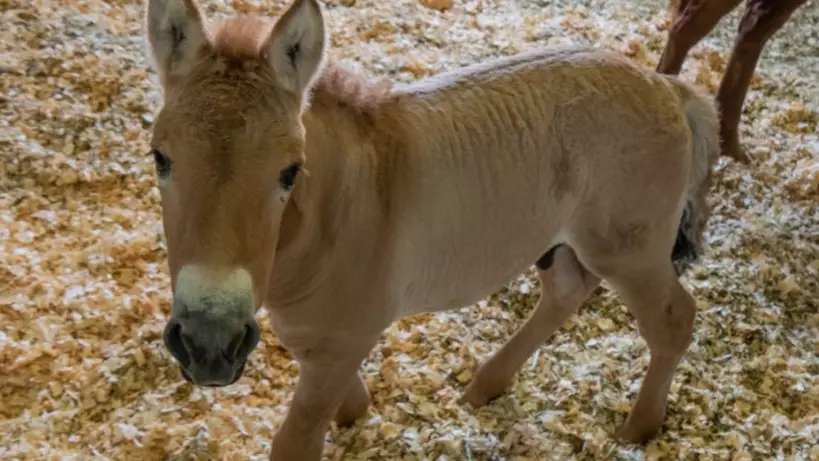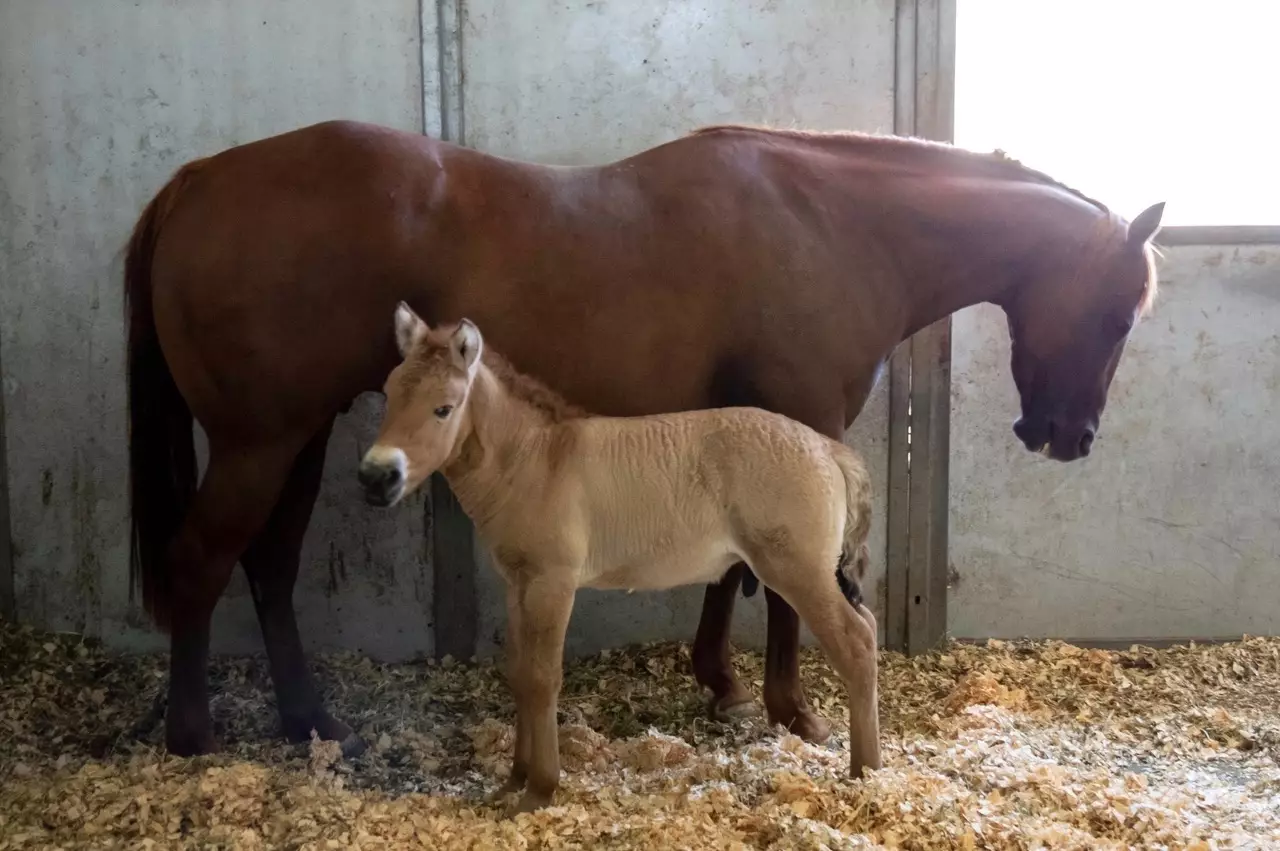
Scientists have successfully cloned a Przewalski's horse for the first time ever, and are hopeful it could help save the endangered species. You can see the clone frolicking about here:
The foal was born to a surrogate mother in Texas, USA, on 6 August and is the clone of a stallion born in the UK in 1975, whose DNA was cryopreserved 40 years ago. And the birth of the colt - who has been named Kurt - is as vital as it is impressive.
Advert
It is hoped he will bring with him some much needed genetic variation within the species, which formerly went extinct in the wild, surviving for the past 40 years almost entirely in zoos around the world.
All of the Przewalski's horses in the world today descend from 12 horses born in the wild, and intensive breeding programmes have helped to restore numbers - however, genetic diversity has been lost.
This makes the creature less able to adapt to environmental changes and susceptible to inbreeding.
This breakthrough - the result of a collaborative effort between Revive & Restore, ViaGen Equine and San Diego Zoo Global - could be crucial in preserving the future of the species.
Advert
Paul A. Baribault, president of San Diego Zoo Global, said: "The work to save endangered species requires collaborative and dedicated partners with aligned goals.
"We share in this remarkable achievement because we applied our multidisciplinary approach, working with the best scientific minds and utilising precious genetic material collected and stored in our wildlife DNA bio bank."

Kurt will be moved to the San Diego Zoo Safari Park to be integrated into a breeding herd of his species once he is older, where it is hoped he will pass on his cryopreserved DNA further.
Advert
Bob Wiese, chief life sciences officer at San Diego Zoo Global, said: "This colt is expected to be one of the most genetically important individuals of his species.
"We are hopeful that he will bring back genetic variation important for the future of the Przewalski's horse population."
While ongoing reintroductions since the 1990s have established several wild herds on grasslands in China and Mongolia, maintaining genetic variation is likely to be an important part of ensuring the species' survival in the future.
Ryan Phelan, executive director of Revive & Restore, said: "This birth expands the opportunity for genetic rescue of endangered wild species.
Advert
"Advanced reproductive technologies, including cloning, can save species by allowing us to restore genetic diversity that would have otherwise been lost to time."
Topics: Horse, Science, Interesting, Animals